Go Lean Commentary
Where were you in 1979?
Do you remember the Mainframe Computers of the day? It took up a whole floor in an office building. A Large Footprint.

The same computing power today is found in your smart-phone in your pocket: CPU Speed, memory capacity, storage size, and inter-connectivity capabilities.

The more things change, the smaller the footprint gets. This is true of computers … and factories.
So in case you were not paying attention to the Industrial Landscape for the Mineral industry (including petroleum), what has happened over the years and decades is that the refining – manufacturing footprint has shrunk in size tremendously.

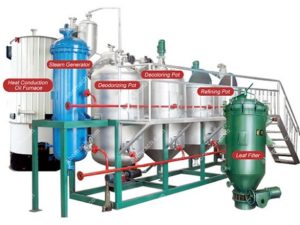
NEW Mini Refinery
So if a community wants to venture into the forays of Mineral Extraction, they no longer need to send the Raw Materials off to some foreign destination for processing. Nope; the processing to produce Finished Goods can be done …
- Right Here.
Yes, we can work with the cheap Raw Material and turn it into valuable Finished Goods. Now, the related high-end skilled jobs – think factory jobs – stay here. The resultant profit stays here too!

This is submission 3-of-6 for the January 2021 Teaching Series from the movement behind the 2013 book Go Lean … Caribbean. Every month, as we engage in this effort to reform and transform the Caribbean economic engines, we message to Caribbean stakeholders about issues germane to our regional life and culture. We want to make the homeland a better place to live, work and play, so there must be some focus on the Industrial Workplace.
This commentary asserts that our Natural Resources should be used to enrich our people, not someone else. See the full series here as follows:
- Mineral Extraction 101 – Raw Materials ==> Finished Goods
- Mineral Extraction 101 – Lesson from History: Jamaica’s Bauxite
- Mineral Extraction 101 – Industrial Reboot – Modern factories – Small footprints
- Mineral Extraction 101 – Commerce of the Seas – Encore
- Mineral Extraction 101 – Restoration after Extraction – Cool Sites
- Mineral Extraction 101 – Sovereign Wealth Fund – Not the Panacea
Mineral Extraction, mining and drilling is very much destructive to the environment; there will be a consequential impact. So we urge you, as related in the previous entry of this series (2-of-6):
Just Say No … to Mining … or if we do it, do it right.
So listen up people, if you want real economic benefits from Mineral Extracted here, then you need to Add Value to the extracted mineral here.
Dirt is Cheap.
Finished Goods, on the other hand, have a measure of profit embedded in the pricing.
Just how do we add the value?
Where there is a Will, there is a Way. Thanks to modern technology, that Will and the Way is conceivable, believable and achievable. Just consider these two examples:
Oil – Refined oil (Diesel and Gasoline) has been the standard in modernity for over 100 years. There are BIG refineries littered around the world and even here in our Caribbean region. Alas, the technology now allows for Mini Refineries; see here:
Title: Mini Refineries for Emerging Economies and Remote Locations
Modular mini refineries are best utilized in emerging economies and in remote locations where gasoline, diesel and fuel oil are needed. The local crude oil is normally your lowest cost feed stock because the transportation costs are minimized.Mini refineries with heavy crudes and low API gravity produce more fuel oil and less naphtha and diesel. Light crudes with high API gravity produce less fuel oil and more naphtha and diesel.
Additionally, sulfur content determines refinery cost being as low sulfur crudes may not require hydrotreaters.
Crude oil is classified as light, medium, or heavy grade according to its measured API gravity.
- Light crude oil has an API gravity higher than 31.1° (i.e., less than 870 kg/m3)
- Medium crude oil has an API gravity between 22.3° and 31.1° (i.e., 870 to 920 kg/m3)
- Heavy crude oil has an API gravity below 22.3° (i.e., 920 to 1000 kg/m3)
- Extra heavy crude oil has an API gravity below 10.0° (i.e., greater than 1000 kg/m3)
Grades of crude oil are shown above in graphical form.
When someone calls asking how much a 10,000 barrel per day mini refinery would cost, my response is that it depends on:
- API gravity
- Sulfur content
- Products desired
- Sulfur specifications on finished products
- Ability to switch between different crudes
There are no two mini refineries that are alike. The ability to switch between light and heavy crudes means that one crude may require a larger naphtha hydrotreater, a larger naphtha reformer and a larger diesel hydrotreater whereas the other may not. We typically analyze many crude scenarios for your mini refinery to determine the best configuration and process unit sizes during the feasibility study which is performed at the beginning of any new project.
Let’s look at three variations of mini-refineries:
- A simple topping refinery
- A hydro skimming refinery with naphtha and diesel hydrotreaters
- A hydro skimming refinery with naphtha and diesel hydrotreaters and naphtha reformer
For the simple topping refinery, we have a gas fired heater to heat the crude before the atmospheric distillation unit, as shown below in PFD 101 [in the following link].
In PFD 102, we have all of the above from PFD 101 plus a naphtha hydrotreater, diesel hydrotreater and hydrogen plant.
In PFD 103, we have all of the above from PFD 102 minus the hydrogen plant plus a naphtha reformer. The hydrogen plant is not needed due to the naphtha reformer providing hydrogen for the naphtha and diesel hydrotreaters.
R.C. Costello & Assoc., Inc. offers turnkey design solutions for mini refineries, with procurement & installation worldwide. We provide first class Mini Refinery solutions with quality components and instrumentation & controls, safe designs and high on stream factors.
Let COSTELLO work with you to design and build the refinery that meets your quality requirements on schedule and within your budget.
Source: Posted November 10, 2017; retrieved January 24, 2021 from: https://rccostello.com/wordpress/mini-refineries/understanding-modular-mini-refineries/
Cement – The dirt – think limestone – that we can excavate in our islands and coastal states can be processed into cement, and sold as building materials here and abroad. Previous versions of Cement Factories were BIG monstrosities; today, they have small footprint, but even better quality and efficiency; see this sample here:
Title: 100-1000 tpd Mini Cement Plant For Sale
Introduction:
Mini Cement Plant is a leading world level industrial mill. Cement Production Line is designed by our engineers and technical workers, basing on many years’ industrial mill research, and adopting world leading powder processing technology. Cement Production Line adopts numbers of national patent of mill, such as trapezium working surface, flexible connection, roll linked pressure boost, etc. cement production line has completely overcome traditional mill’s defect in application, capacity, fineness, energy consumption, service life, etc. And a mini cement plant is the ideal substitute of traditional mill, such as Raymond mill, high pressure suspension mill, ball mill, etc. Nowadays, grinding mills are widely used in the Metallurgy industry, electric power industrial, chemical, building, steel industry, coal industry, etc. And cement production line has achieved large economic benefits and social benefits.
NEW Mini Cement Plant
The Mini Cement Plant is widely used in many industrial, such as building, chemical, chemical fertilizer, metallurgy, mining, nonmetal, abrasive, bearing materials, ceramic, steel, thermal power, bricks & tiles, coal industry, etc.. The Mini Cement Plant can grind these materials which are 9 or less on the Mohs scale, and moisture is below 6%, and are non-explosive and non-flamable mining materials. The final size can be adjusted from 30 to 400 meshes easily. There are thousands materials that our machine can grind. The typical materials are cement (raw meal and cement clinker), quartz, feldspar, calcite, gypsum, limestone, dolomite, graphite, fluorite, aedelforsite, phosphate ore, fused calciummagnesium phosphate, carbamide, electrolytic manganese metal, ferromanganese, coal, gangue, slag, zirconium, steatite, granite, orthoclase, marble, barytes, ceramic.
[See Photo here:]
Min. Order / Reference FOB Price 1 Piece US $5,999/ Piece Port: Shanghai, China Production Capacity: 80sets/Month Payment Terms: L/C, T/T
Application: Construction, Mineral Operation Certification: CE, ISO Customized: Customized Automatic Grade: Automatic Spare Parts Supply: for Whole Year Test & Installation: Engineer Assigned Source: Retrieved January 24, 2021 from: https://zenithdream.en.made-in-china.com/product/eNlmEcTKvQht/China-Factory-Supply-100-1000tpd-Mini-Cement-Plant-for-Sale.html#slideVideo
Consider too, this related VIDEO for the Cement Milling equipment, infrastructure and process:
VIDEO – About Shanghai Zenith Company – https://youtu.be/Mwx6HWWBdkU
Zenith Crusher
Posted January 5, 2015 – Shanghai Zenith Mining and Construction Machinery Co., Ltd. is a hi-tech, engineering group. We are specialized in the research, development, and production of industrial crushing, powder grinding, mineral processing equipments and other related devices.
Ready. Set. Go …
The Future is Now!
This is the Way; all we have needed was the Will.
The Go Lean movement have contemplated these types of initiatives; we have presented strategies, tactics and implementations to employ here in the Caribbean region. Consider this sample of previous blog-commentaries that we have presented related to Industrial Developments and Manifestations envisioned for the Caribbean homeland:
| https://goleancaribbean.com/blog/?p=15331 | Industrial Reboot – Auto-making 101 |
| https://goleancaribbean.com/blog/?p=15267 | Industrial Reboot – Prefab Housing 101 |
| https://goleancaribbean.com/blog/?p=14245 | Leading with Money Matters – Competing for New Industries |
| https://goleancaribbean.com/blog/?p=13155 | Industrial Reboot – Pipelines 101 |
| https://goleancaribbean.com/blog/?p=12146 | Commerce of the Seas – Shipbuilding Model of Ingalls |
| https://goleancaribbean.com/blog/?p=3473 | Haiti to Receive Grants to Expand Caracol Industrial Park |
| https://goleancaribbean.com/blog/?p=2750 | Disney World – Role Model for Self-Governing Entities |
| https://goleancaribbean.com/blog/?p=2857 | Where the Jobs Are – Entrepreneurism in Junk |
Accordingly, the Go Lean/CU roadmap facilitates an eco-system for Self-Governing Entities (SGE), an ideal concept for factories, plants and other industrial expressions like mines, quarries, shipyards and even prisons. The exclusive federal regulation and promotion activities of SGE’s lie within the sole jurisdiction of the Caribbean Union Trade Federation (CU). Imagine bordered campuses – with a combination of fencing, walls and/or moats/canals – that designates the exclusivity of the commercial, security and administration to a superlative governance above the member-states.
See this excerpt from Page 80 of the Go Lean book:
The agencies of the [CU‘s] State Department will promote and administer all Self-Governing Entities throughout the region. This refers to foreign military bases, scientific labs and industrial/commercial campuses. SGE campuses are presented as economic engines for the region. They will have to contract with their neighboring communities for utilities and services. Many times, these campuses may only be work-sites, and all human needs are dependent on the neighboring communities.
These facilities will not be subject to the laws of the local states of their address, rather CU, international, foreign sovereignty, or maritime laws will apply. This structure will not usher in some anarchist movement with “wild, wild west” guidelines. Rather, at the time of incorporation, by-laws (or constitutions) must be presented to the CU State Department for acceptance. In addition, the “due process” to apply changes to by-laws must also be submitted. This ensures that the SGE administration is in an orderly manner and does not undermine the original charter. For ongoing governance, the SGE must submit reporting (including board meeting minutes) to the State Department, quarterly.
The SGE will have controlled access for their boundaries (walls, fences, canals/waterways, etc) and their focus will be limited to the scope of their charter. A medical campus, for example, can conduct experimental therapies only on their designated grounds. Yet SGE’s must engage the neighboring localities for transport, and infrastructural needs. In the event of emergencies, (though the SGE will define proactively the responsible parties that can call “911”), the CU institutions will have the right to intrude on the secured grounds to protect life, limb and/or property.
There is a Good Neighbor mandate for SGE’s to co-exist with their neighbors. So the administration of SGE’s will require careful collaboration with other CU departments, municipal authorities, national governments and foreign entities. The State Department therefore serves as 1st point of contact, a liaison office.
This technocratic vision of a superlative industrial landscape – SGE’s – was an early motivation for the Go Lean roadmap.
This is transforming! This is the vision of an industrial reboot! This is where and how more factory jobs can be created. Also, the Go Lean movement (book and blogs) details the principles of SGE’s and job multipliers, how certain industries are better than others for generating multiple indirect jobs down the line (or off-campus) for each direct job on the SGE’s payroll. Certain industries are perfectly suited for this SGE structure; this is true of Mineral Extraction.

Yes, the Go Lean/CU roadmap calls for the region to carefully and cautiously foster Mineral Extractions as an industrial alternative to tourism. We have the natural resources on land; (there is the concept of the Exclusive Economic Zone for development in the seas).
This is the technocratic Way Forward and how we can employ Best Practices for the industrial developments for any and every member-state.
This is how, why and where we can make the Caribbean homeland a better place to live, work and play. 🙂
About the Book
The book Go Lean…Caribbean serves as a roadmap for the introduction and implementation of the technocratic Caribbean Union Trade Federation (CU), for the elevation of Caribbean society – for all member-states. This CU/Go Lean roadmap has these 3 prime directives:
- Optimization of the economic engines in order to grow the regional economy to $800 Billion & create 2.2 million new jobs.
- Establishment of a security apparatus to ensure public safety and protect the resultant economic engines.
- Improve Caribbean governance to support these engines, including a separation-of-powers between the member-states and CU federal agencies.
The Go Lean book provides 370-pages of turn-by-turn instructions on “how” to adopt new community ethos, plus the strategies, tactics, implementations and advocacies to execute so as to reboot, reform and transform the societal engines of Caribbean society.
Download the free e-Book of Go Lean … Caribbean – now!
Who We Are
The movement behind the Go Lean book – a non-partisan, apolitical, religiously-neutral Community Development Foundation chartered for the purpose of empowering and re-booting economic engines – stresses that reforming and transforming the Caribbean societal engines must be a regional pursuit. This was an early motivation for the roadmap, as pronounced in the opening Declaration of Interdependence (Pages 11 – 13):
xi. Whereas all men are entitled to the benefits of good governance in a free society, “new guards” must be enacted to dissuade the emergence of incompetence, corruption, nepotism and cronyism at the peril of the people’s best interest. The Federation must guarantee the executions of a social contract between government and the governed.
xii. Whereas the legacy in recent times in individual states may be that of ineffectual governance with no redress to higher authority, the accidence of this Federation will ensure accountability and escalation of human and civil rights of the people for good governance, justice assurances, due process and the rule of law. As such, any threats of a “failed state” status for any member state must enact emergency measures on behalf of the Federation to protect the human, civil and property rights of the citizens, residents, allies, trading partners, and visitors of the affected member state and the Federation as a whole.
xvi. Whereas security of our homeland is inextricably linked to prosperity of the homeland, the economic and security interest of the region needs to be aligned under the same governance. Since economic crimes … can imperil the functioning of the wheels of commerce for all the citizenry, the accedence of this Federation must equip the security apparatus with the tools and techniques for predictive and proactive interdictions.
Sign the petition to lean-in for this roadmap for the Caribbean Union Trade Federation.

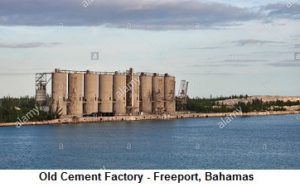



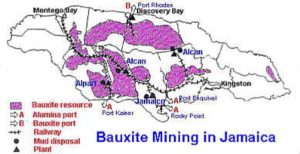


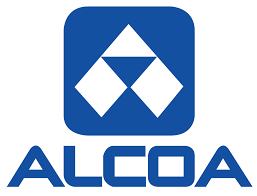
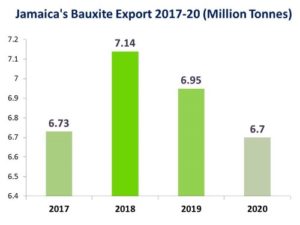
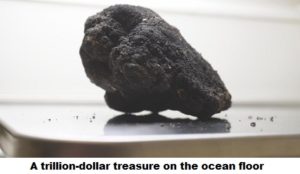 How about minerals?
How about minerals?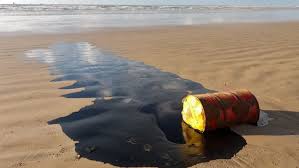
 1776 was a very good year…
1776 was a very good year…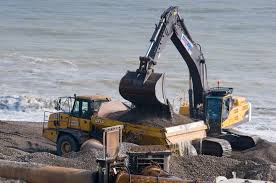



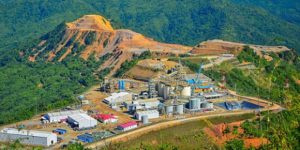



 Who is the most powerful person in the world?
Who is the most powerful person in the world? Professor Donald Harris Kamala Harris’ Jamaican father, has vigorously dissociated himself from statements made on the New York Breakfast Club radio show earlier this week attributing her support for smoking marijuana to her Jamaican heritage. Professor Harris has issued a statement to
Professor Donald Harris Kamala Harris’ Jamaican father, has vigorously dissociated himself from statements made on the New York Breakfast Club radio show earlier this week attributing her support for smoking marijuana to her Jamaican heritage. Professor Harris has issued a statement to  This seeming lack of knowledge about the connection between her Indian and Jamaican heritage provides additional ammunition for some Jamaicans who are of the view that Ms. Harris tends to downplay her Jamaican heritage when it suits her, crediting her Tamil Indian mother with the most significant influence on her life and outlook and rarely talks about her father’s influence. Her father Donald, hardly ever gets credit except when mentioned alongside her mother, but rarely as an individual. Even when asked by her host in the now famous ‘marijuana interview’ about her motivation to enter the presidential race, Ms. Harris referenced ONLY her mother whom she said, raised her and her sister Maya with many beliefs and rules – one being never to sit and complain about something, but to do something about it. Yet, anyone who has read ‘Reflections of a Jamaican Father’ Donald Harris’ heart-warming account of how he raised his two daughters, will immediately realize that there is another side to the Kamala Harris story. In that article Donald Harris writes:
This seeming lack of knowledge about the connection between her Indian and Jamaican heritage provides additional ammunition for some Jamaicans who are of the view that Ms. Harris tends to downplay her Jamaican heritage when it suits her, crediting her Tamil Indian mother with the most significant influence on her life and outlook and rarely talks about her father’s influence. Her father Donald, hardly ever gets credit except when mentioned alongside her mother, but rarely as an individual. Even when asked by her host in the now famous ‘marijuana interview’ about her motivation to enter the presidential race, Ms. Harris referenced ONLY her mother whom she said, raised her and her sister Maya with many beliefs and rules – one being never to sit and complain about something, but to do something about it. Yet, anyone who has read ‘Reflections of a Jamaican Father’ Donald Harris’ heart-warming account of how he raised his two daughters, will immediately realize that there is another side to the Kamala Harris story. In that article Donald Harris writes: Kamala Harris will have trouble persuading black voters to make her president in 2020. First, the U.S. senator from California must explain why Donald Trump has a better prison-reform record than she had as the Golden State’s attorney general. Then she’ll have to overcome the perception she’ll do anything to climb to the top.
Kamala Harris will have trouble persuading black voters to make her president in 2020. First, the U.S. senator from California must explain why Donald Trump has a better prison-reform record than she had as the Golden State’s attorney general. Then she’ll have to overcome the perception she’ll do anything to climb to the top.
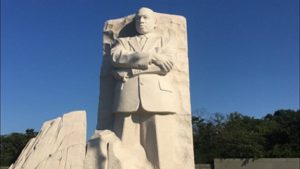 “Free At Last, Free At Last; Thank God Almighty, We Are Free At Last”
“Free At Last, Free At Last; Thank God Almighty, We Are Free At Last”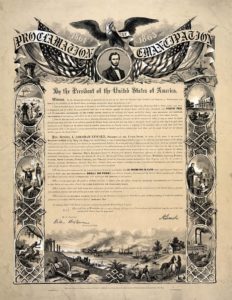
 (See the
(See the  There are many examples of racial oppression, suppression and repression in the US. These experiences may be indicative that something deeper than equality is at stake; there is a Bad Community Ethos – fundamental character or spirit of a culture; the underlying sentiment that informs the beliefs, customs, or practices of a group or society – tied to religious mis-information.
There are many examples of racial oppression, suppression and repression in the US. These experiences may be indicative that something deeper than equality is at stake; there is a Bad Community Ethos – fundamental character or spirit of a culture; the underlying sentiment that informs the beliefs, customs, or practices of a group or society – tied to religious mis-information. … for our 30 Caribbean member-states, 29 of them feature a majority population of Black-and-Brown people. While this majority does not always equal political or economic power, universal suffrage (one man/woman, one vote) has been transformational in correcting social ills. Universal suffrage equals universal respect, so this should always be at the start of change in society. This teaches us that societal stewards should work to
… for our 30 Caribbean member-states, 29 of them feature a majority population of Black-and-Brown people. While this majority does not always equal political or economic power, universal suffrage (one man/woman, one vote) has been transformational in correcting social ills. Universal suffrage equals universal respect, so this should always be at the start of change in society. This teaches us that societal stewards should work to 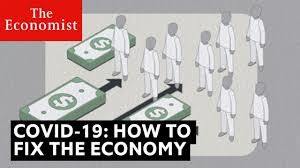 To fix the economy, we have to fix the pandemic – President-Elect Joe Biden, as a candidate in September 2020.
To fix the economy, we have to fix the pandemic – President-Elect Joe Biden, as a candidate in September 2020.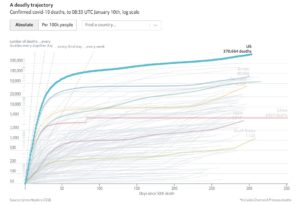
 The world is enduring the Coronavirus COVID-19 pandemic crisis; it is wreaking havoc on the world’s economic engines – $250 Billion a day in losses – and Public Health deliveries. The only hope is a vaccine, of which there are a number of them in
The world is enduring the Coronavirus COVID-19 pandemic crisis; it is wreaking havoc on the world’s economic engines – $250 Billion a day in losses – and Public Health deliveries. The only hope is a vaccine, of which there are a number of them in 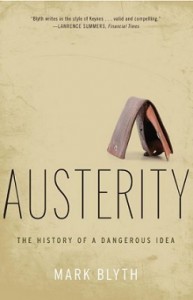 Those who advocate to remediate Caribbean economics needs to avoid a series of Economic Fallacies. …
Those who advocate to remediate Caribbean economics needs to avoid a series of Economic Fallacies. …


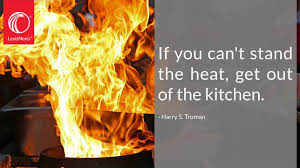 Face it Puerto Rico, you have not been handling the heat!
Face it Puerto Rico, you have not been handling the heat!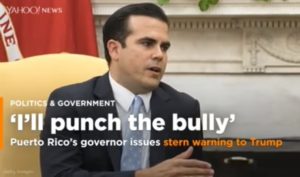 The Washington meeting — which was attended by White House trade adviser Peter Navarro and members of Rosselló’s government — was requested after reports that Trump was considering halting further disaster relief to the beleaguered U.S. territory.
The Washington meeting — which was attended by White House trade adviser Peter Navarro and members of Rosselló’s government — was requested after reports that Trump was considering halting further disaster relief to the beleaguered U.S. territory.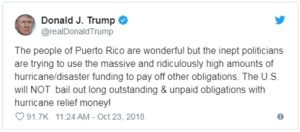
 This consideration brings to mind, an overall discussion of the Way Forward for this country – Puerto Rico – and all Caribbean countries. Our current disposition is dire, a crisis, near-Failed-State status. Yet, the movement behind the Go Lean book posits that a “crisis is a terrible thing to waste”. Here for April 2019, we present a full series of commentaries related to the Way Forward for these 30 Caribbean member-states. The full series is presented as follows:
This consideration brings to mind, an overall discussion of the Way Forward for this country – Puerto Rico – and all Caribbean countries. Our current disposition is dire, a crisis, near-Failed-State status. Yet, the movement behind the Go Lean book posits that a “crisis is a terrible thing to waste”. Here for April 2019, we present a full series of commentaries related to the Way Forward for these 30 Caribbean member-states. The full series is presented as follows: The Puerto Rico Admission Act of 2019, which is sponsored by Rep. Darren Soto, D-Florida, and Puerto Rico Resident Commissioner Jenniffer González-Colón, would give the island statehood within 90 days of passage.
The Puerto Rico Admission Act of 2019, which is sponsored by Rep. Darren Soto, D-Florida, and Puerto Rico Resident Commissioner Jenniffer González-Colón, would give the island statehood within 90 days of passage.
 The 2012 Nobel Peace Prize was awarded to the EU “for over six decades having contributed to the advancement of peace and reconciliation, democracy and human rights in Europe” by unanimous decision of the committee in Norway.
The 2012 Nobel Peace Prize was awarded to the EU “for over six decades having contributed to the advancement of peace and reconciliation, democracy and human rights in Europe” by unanimous decision of the committee in Norway.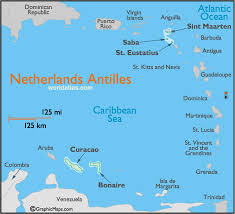 There are Caribbean territories that are actually members of the European Union … kinda. That would be the French Antillean islands (Guadeloupe, Martinique, St. Bartholomew and St. Martin) and the Netherlands Antilles (
There are Caribbean territories that are actually members of the European Union … kinda. That would be the French Antillean islands (Guadeloupe, Martinique, St. Bartholomew and St. Martin) and the Netherlands Antilles (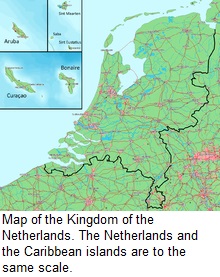
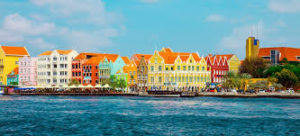


 …
…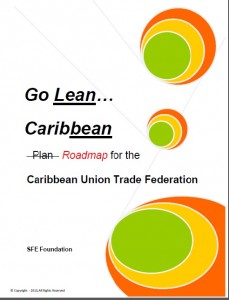
 a political and
a political and 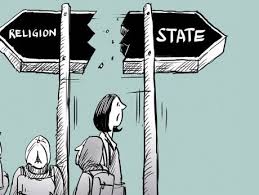

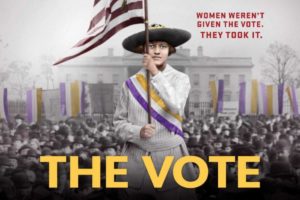 The European Netherlands have always been ahead of us in the Caribbean, but eventually everyone else catches up. Consider the example of universal suffrage: One Man / One Woman / One Vote.
The European Netherlands have always been ahead of us in the Caribbean, but eventually everyone else catches up. Consider the example of universal suffrage: One Man / One Woman / One Vote.
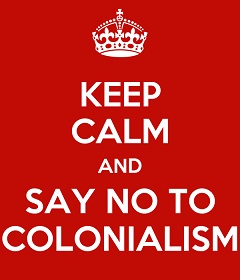

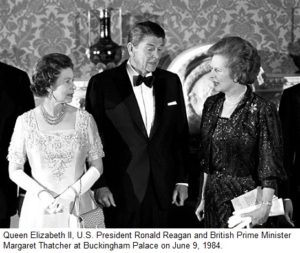
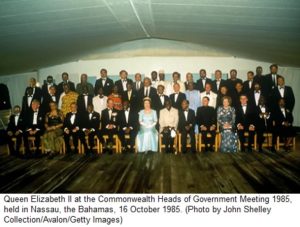 At one point, South Africa said “Enough Already”, as they
At one point, South Africa said “Enough Already”, as they